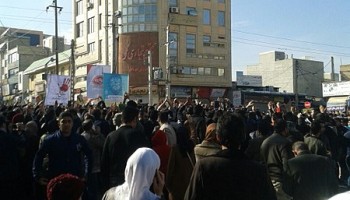Through money-laundering, corruption and various kinds of profiteering, the internationally-recognized government of Abed Rabbo Mansour Hadi, misused a part of the US$2 billion aid package Saudi Arabia deposited with the Yemen Central Bank in 2018, says the U.N. report seen on Thursday by OCCRP.
The package was part of a development and reconstruction program that was supposed to supply the country’s starving population with rice, milk, sugar and other food items.
The document also slammed the other side in the conflict - the Iranian-backed Houthi party which controls 70% of the country, including the capital Sana’a. It estimates that in 2019 alone, the Houthis diverted a large portion of at least $1.8 billion worth of taxes and state revenue they collected on the territory they control to fund their military campaign against the internationally-recognised government.
The U.N. monitors also spoke of growing evidence of “entities” and ”individuals” in Iran sending weapons to the Houthis in violation of the U.N. arms embargo - a claim Tehran has denied.
A spokesperson for the Houthis declined comment on the report.
The mass corruption on both sides has “adversely affected access to adequate food supplies” in a country threatened by famine, it said. The report accused both of exploiting their respective funds while engaging in “continuous and widespread” human rights violations, including indiscriminate attacks against civilians, enforced disappearances and torture.
Yemen’s Central Bank broke its foreign exchange rules and manipulated the foreign exchange market, laundering “a substantial part of the Saudi deposit in a sophisticated money-laundering scheme” that saw traders receive a $423 million windfall, the report said.
“The $423 million is public money, which has been illegally transferred to private corporations. Documents provided by the Central Bank of Yemen fail to explain why they adopted such a destructive strategy,” it claimed.
The report was first leaked to Reuters Wednesday and reacting to the agency’s article a Central Bank statement rejected these claims on Wednesday and said it was employing the “highest level of transparency, commitment to international banking standards, and donor rules.”
“We will study the report once it is made public and we will reply with evidence and documents which show the measures of transparency the Central Bank employs,” said the statement that was sent to OCCRP. “We will not hesitate to present its findings to the public and to international partners, if need be.”
The U.N. panel of experts might have been misled by wrong information provided by “anti-Yemeni parties,” said the statement.
The Yemen Central Bank has not been audited since 2014, an independent economist told OCCRP. Some experts called for a local independent committee of experts to review the allegations and audit both the central bank’s budget and the Saudi deposit.
Others said that doesn’t make any sense.
“You can’t be the party accused and at the same time running an investigation into what you have been accused of,” one economist who requested anonymity told OCCRP. “This is in violation of every rule in the lexicon of good governance and transparency.”
Over 233,000 Yemenis have been killed since the war began in 2014, according to U.N. figures. U.N. Secretary-General António Guterres warned in November that Yemen was in “imminent danger of the worst famine the world has seen for decades” and that “millions of lives may be lost”.
Several European diplomats told OCCRP that they found the report “disturbing.”
“The report included very dangerous information that will negatively impact the Yemeni economy especially since Yemen suffers from a scarcity of transfers in hard currency, and imports most of its needs from abroad,” Mustafa Nasr, Chairman of Yemen’s Studies & Economic Media Center (SEMC), told OCCRP.
“Losing confidence in Yemeni institutions, especially financial ones, will lead to financial difficulties, and impose more restrictions on Yemen,” he said.
Abdul Muaz Dabwan, an MP who fled in 2015 to Cairo to escape a death sentence by the Houthis, slammed both sides in the conflict.
“Parasites feeding on corruption are dominating the scene in Yemen today, and the Yemeni people are paying the price for these abuses by both the Houthis and the legitimate body,” he told OCCRP.
In a Facebook post, Rashid Al-Ansi, former advisor to former Central Bank governor Hafiz Mayad, said that “if the Yemeni judiciary does not move, we will move internationally” with the report as a base.
Such a move could influence donors and governments supporting Yemen.
He claimed that “these crimes” were reported to the public prosecutor almost a year and a half ago but that nothing was done.
Hadi’s Saudi-backed government declined comment. But a source close to the President told OCCRP that Yemen’s Shura Council (advisory body) might be asked to investigate the report.
COVID-19 affected the U.N. panel of experts’ ability to travel and investigate, which also adversely affected the drafting process, the report admitted.
Additional reporting by Asseel Sarih in Sana’a, Yemen






